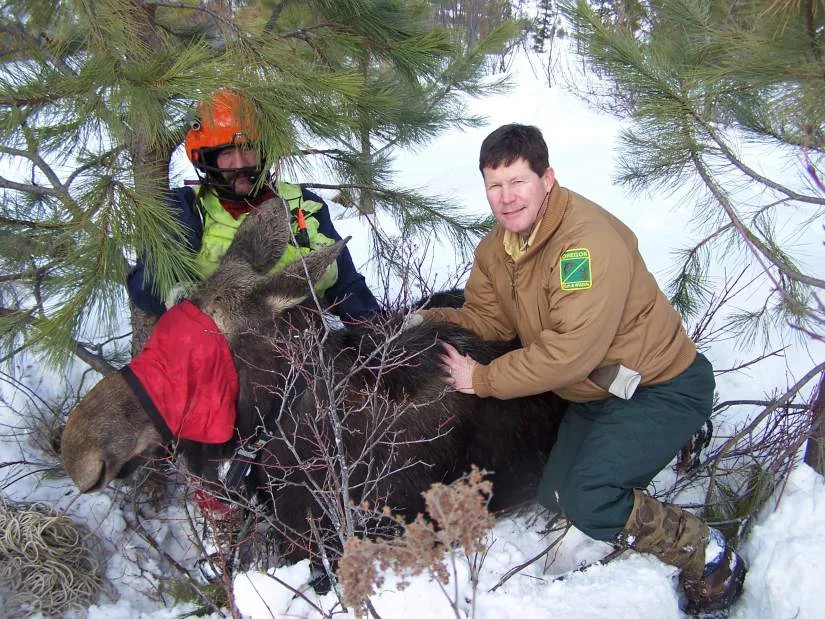The Oregon Wild Sheep Foundation Grant-In-Aid committee received and reviewed five applications requesting funding in 2018. The committee recommended that all five be approved for all or a portion of the funds requested, and the board agreed. Many of these projects are partially funded by OR Wild Sheep Foundation in conjunction with other organizations and/or agencies, which helps to stretch our dollars.
Project # 18-126: $5,000 went to Francis Casirer, Coordinator for Hells Canyon Bighorn sheep project. This will contin- ue disease research by capturing and testing for movi shedders in Hells Canyon.
Project # 18-127: $5,000 went to Tom Besser and Washington State University for comparative analysis of bighorn sheep movement patterns across subspecies and spatial domains across all western states. With a goal of better un- derstanding contact and pathogen transmission risk between bighorns and domestic sheep.
Project # 18-128: $5,000 went to Rob Spann and Oregon State University for connectivity study of California bighorn sheep in Oregon, Nevada and Idaho. This should show implications for disease and genetic management.
Project #18-129: $5,000 went to Katie Pierson of ODFW for Lower Deschutes and John Day fire restoration. This in- cludes reseeding and spraying to increase forage potential through establishment of native and desirable grasses and forbs.
Project #18-130: $15,000 went to Larry Jacobs, representing Oregon for Tri State Hells Canyon Initiative area. Pilot project for outreach position to work with small farm flock owners of domestic sheep to explain and reduce risk of dis- ease conflict between domestic and wild sheep.
Funding by OR Wild Sheep Foundation for these projects in 2018 totals $40,000. We continue to fulfill our goal of putting and keeping Bighorn Sheep and Mountain Goats on the mountain.
Article by Don South


